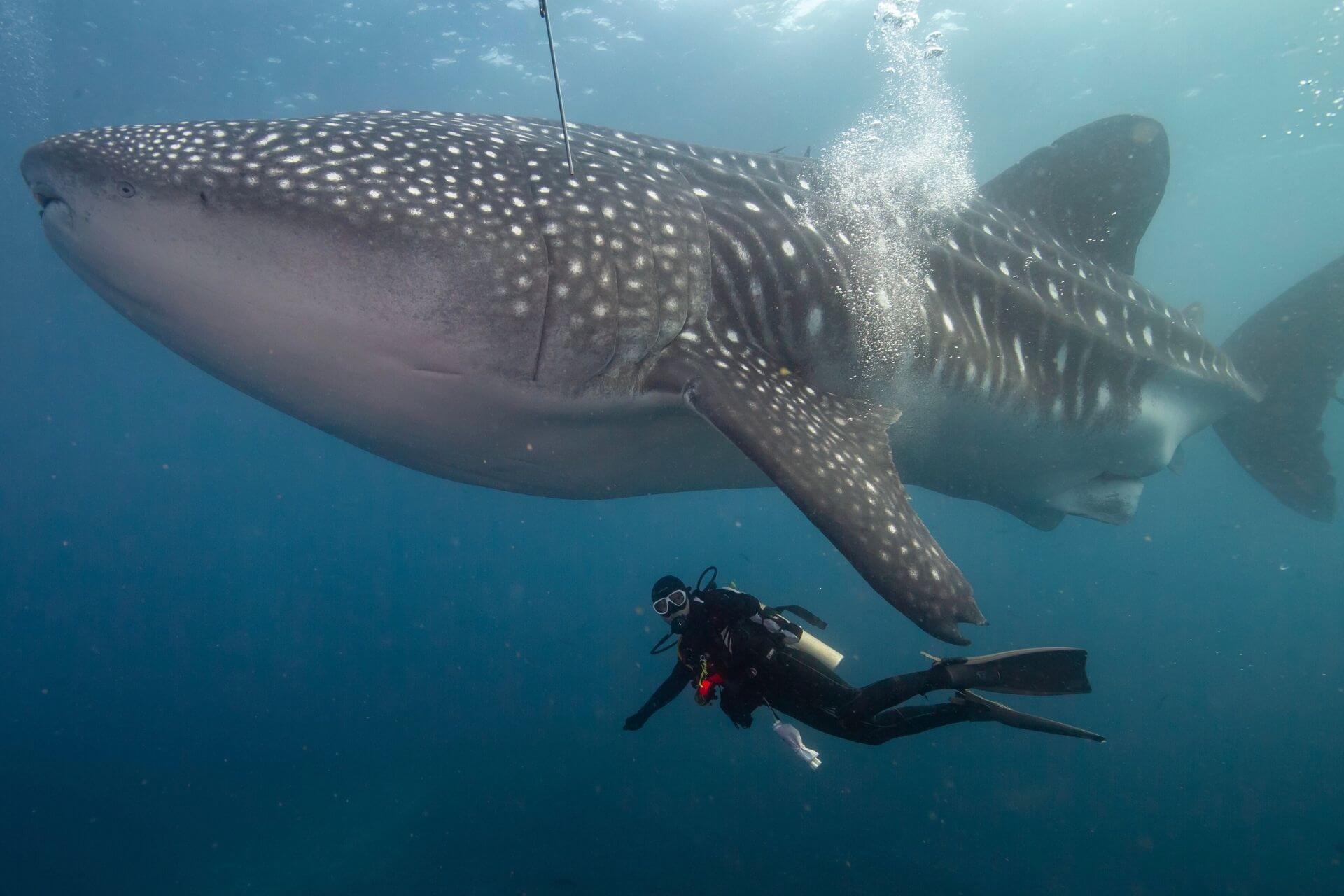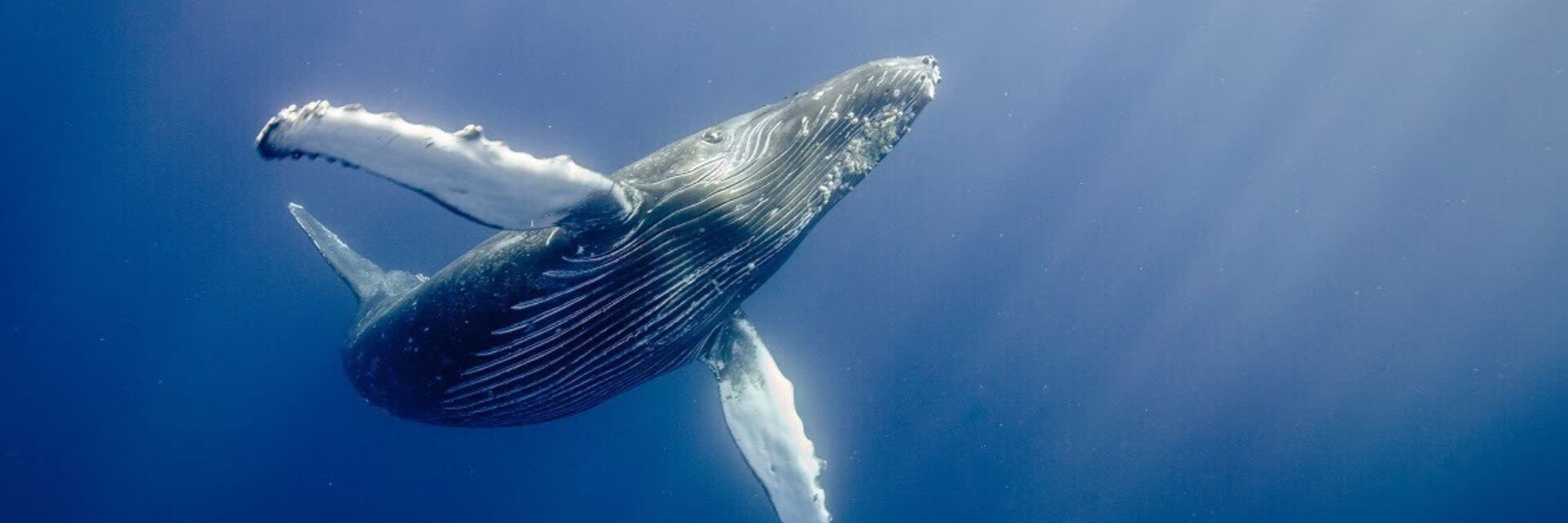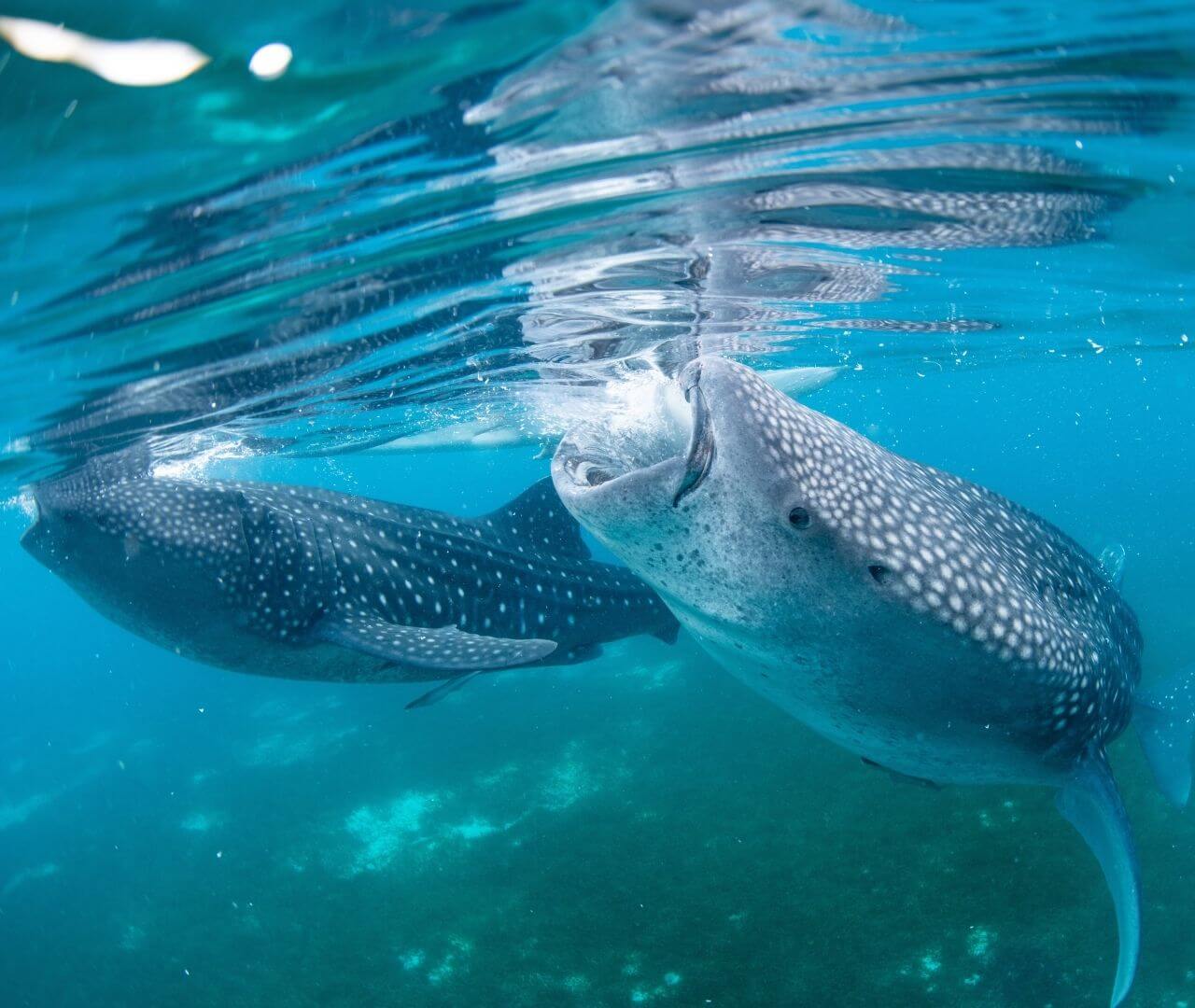Ocean Ecosystems

What Is an Ocean Ecosystem?
Word of the Week
Gills
Gills are an organ found on fish (and some amphibians) that allow them to breathe underwater.
Gills pull oxygen from the water and release carbon dioxide, just like lungs pull oxygen from the air!
Species Spotlight
Whale Shark
Rhincodon typus
Whale sharks are huge creatures! They can grow more than 40-feet long and weigh up to 11-tons, making them the largest fish in the world. To grow this large, whale sharks need to eat a lot of food. Many people are surprised that the largest fish in the world eats tiny organisms! They feed on krill, small fish, fish eggs, and tiny algae called phytoplankton. Whale sharks feed using a process called filter feeding. As they swim, they open up their mouths to slurp up water and any small organisms that might be floating around. Once they have a mouthful, they push water through their strainer-like gills to let water out and trap food inside!
Whale sharks are commonly found in warm ocean waters where they have plenty of small organisms to feed on. Just like us, whale sharks are mostly diurnal, meaning they are most active during the day. They spend most of their time traveling through the ocean in search of food. While they are usually found alone, they do sometimes come together in groups when migrating long distances. Because of their large size, they have very few predators, which helps them live more than 100 years!
Conservation Corner
MICROPLASTICS
Most of us use plastic everyday, but where does it end up when we are done with it? Some of it is recycled, some of it ends up in the landfill, and, unfortunately, some of it ends up in the environment. Plastic does not break down into the environment the way paper does. Instead, it breaks into smaller and smaller pieces called microplastics. Even if you don't live near the ocean, these plastic pieces can travel great distances through rivers and other waterways. Microplastics pollute the environment and are often accidentally eaten by many animals. We can help prevent microplastics in the environment by using less plastic (try to find sustainably sourced paper, instead) and recycling the plastic that we end up using!
BRAIN BLAST
Make a list of the plastic that you have used in the past couple of days. Think about things like water bottles, food wrappers, straws, takeout containers, shopping bags, etc. Discuss as a group some of the ways you can reduce your plastic use!
Ocean Organization
Match each plant or animal with the ocean habitat they would be found in!
Ocean Ecosystem Challenges
Whale Vs. Whale Shark
What is the difference between a humpback whale and a whale shark? These large animals may look a lot alike, but there are many differences between them! Complete the Venn diagram to compare and contrast whales and whale sharks.
Think you're an expert? Try it without the word bank!
Glossary
Abiotic
A part of an ecosystem that is nonliving.
Aquatic
An organism that lives entirely in water.
Biotic
A living organism.
Coral Reef
An ocean habitat made of many individual corals found in warm, shallow waters.
Filter Feeding
A type of feeding in which small organisms are trapped in the animal's mouth while water is forced out.
Ecosystem
An area of the planet filled with living and nonliving things that interact.
Gills
An organ found on fish and some amphibians that allow them to "breathe" underwater.
Habitat
An area where a plant or animal lives.
Invertebrate
An animal that has no bones.
Kelp Forest
A coastal ocean ecosystem where kelp is the dominating plant.
Mammal
A group of endothermic (warm-blooded) vertebrates that are covered in hair, produce milk for offspring, and generally give birth to live offspring.
Mangrove Forest
A coastal ecosystem comprised of mangrove trees.
Migration
The process of an animal moving to a new location often during a specific season.
Natal Homing
The process of an adult animal return to where it was born to reproduce.
Ocean
A very large saltwater ecosystem that covers more than 70% of the planet.
Open Ocean
The part of the ocean that is away from the coast and above the ocean floor.
Phytoplankton
Microscopic plants that live near the surface of the ocean.
Reptile
A group of ectothermic (cold-blooded) vertebrates that are covered in scales and generally lay eggs.
Sign Up for our Newsletter
Stay up to date with new adventures, live classes, deals, and more!

Helpful Resources
*Please note we do not offer refunds for EdZOOcating Adventures memberships. We recommend you explore the 3-day free trial prior to subscribing!*




